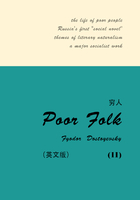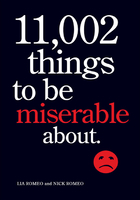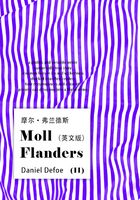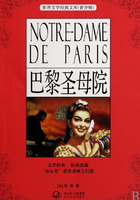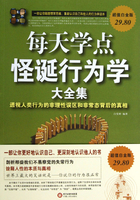He came out of the ambulatory through the temporary wooden door and stood blinking for a moment in the sudden light of the crossways. The gap in the wall of the north transept was big enough for a wagon; and some of the master builder's army were busy tidying the edges. The dust was thicker than ever, like yellow smoke, so that he coughed, and his eyes ran. The two men breaking up the pavement were working out of sight to their thighs, and the dust was so thick in that part of the air, he thought their faces were monstrously deformed, until he saw that they had drawn cloths over their mouths; and these cloths were caked with dust and sweat. A hodman stood waiting by the pit, and when he had a hodful he walked away through the north transept and another took his place. As the hodman came from more dust to less, with the hod over his shoulder, he began a laboured singing. Jocelin understood these words, and after the first few, he clapped his hands over his ears and opened his mouth in the dust to rebuke the singer, who paid no attention, but marched singing through the gap in the wall. Jocelin hurried into the nave and peered round him. He went poking and peering round pillars but found no one. He went purposefully through the south transept; he clashed the great cloister door, he wrenched back the curtain. But there was no Principal Person in the scriptorium; only a deacon who compared two manuscripts, his nose three inches from the page.
'Where is the Sacrist?'
The young man leapt to his feet, saving a book as he did so.
'My Lord, he came through —'
Jocelin snatched the next curtain aside; but there was no one in the school room either. The benches were in disorder, one lying on its side. He went to the arcade of the cloister, leaned with both hands on the sill among the bone counters and game board scratched in the stone and stuck his head through. The Sacrist was sitting on a bench taken from the school room. He sat in the sun, his back against a pillar of the arcade, hands folded in his lap.
'Father Anselm!'
An early fly struck Father Anselm on the nose and bounced away. He opened his eyes without focusing, then he shut them again.
'My Lord Sacrist!'
Jocelin hurried through the next curtain, entered the central square, stood by Father Anselm, put by his irritation, and spoke in a normal, conversational voice.
'The nave is empty. No one is standing guard.'
Though he seemed asleep, Father Anselm was trembling very slightly. He opened his eyes but looked away.
'The dust, my lord. You know how it is with this poor chest of mine.'
'There was no need for you to sit there. You have authority!'
Anselm coughed delicately, tuh, tuh, tuh.
'How can I ask others to do what I can't do myself? And after a day or two there will be less dust. The master builder told me so.'
'So meanwhile they can sing any filthy song they like?'
Despite his care, his determination, Jocelin's voice rose, and his right fist clenched. Deliberately he unclenched it, then flexed the fingers as if the gesture had meant nothing. But the Sacrist had seen, even though he now looked at the great cedar. He was still shaking, but his voice was calm.
'When you consider, my Lord Dean, to what a degree we must accept a disruption of our normal life, a song — forgive me — however worldly, seems an offence venial enough. After all, we have twelve altars in the side aisles of the nave. Because of this, this new building of ours, no candles burn there. And — forgive me again — but since these men, these strange creatures from every end of the world, seem willing to resort to violence at the slightest provocation, it might be wiser to let them sing.'
Jocelin opened his mouth and shut it silently. A picture of the grave deliberations in Chapter, flashed through his mind; but the Sacrist had turned from the cedar, and was looking straight at him, head on one side.
'Yes indeed, my lord Dean. Let them sing for a day or two, at least until the dust settles.'
Jocelin got his breath back.
'But we decided in Chapter!'
'I was given a certain latitude.'
'They defile the church.'
The Sacrist became motionless as the stones behind him. He no longer shook.
'At least they don't destroy it.'
Jocelin cried out.
'What d'you mean?'
The Sacrist's hands were still, as though he had forgotten how he had spread them.
'I, My Lord? Only what I said.'
Very carefully, the Sacrist brought in his hands and clasped them in his lap.
'You mustn't misunderstand me. It's conceivable that these ignorant men dirty the air with their words, just as they fill it with dust and stink. But they don't destroy the air. They don't destroy the building round it.'
'And I do!'
But the Sacrist was on guard.
'Who was talking about you, my Lord?'
'Ever since you voted against the spire in Chapter—'
The irritation in his throat stopped him. Anselm smiled slightly.
'A lamentable lack of faith, my Lord. I was overruled, and agree now, that we must all put our shoulders to the wheel.'
There was a hint of quotation round the wheel and the shoulder, so that the irritation in Jocelin's throat became anger.
'A lamentable lack of faith indeed!'
The Sacrist's smile was not only secure, but kind.
'We don't all feel ourselves so uniquely chosen, my Lord.'
'Do you think I don't see an accusation; however cautiously you phrase it?'
'I have said what I have said.'
'Sitting down.'
Some odd combination of causes was bringing Jocelin's blood to a rage. When he spoke again, there was a quick vibration in his voice.
'I believe our founder's statute is still valid.'
Now the Sacrist was very still. His delicate face was perhaps a shade pinker. He put his feet back under him, and stood up slowly.
'My Lord.'
'The crossways still lack an overseer.'
The Sacrist said nothing. He clasped his hands, gave the merest inclination of his head, and turned to walk towards the cloister door. Suddenly Jocelin put out his hand.
'Anselm!'
The Sacrist stopped, turned, waited.
'Anselm, I didn't mean — You are the one friend I have left from the old days. Where have we come to?'
No answer.
'And you know I didn't mean you to leave like this. Forgive me.'
No smile under the eyes in the pink face.
'Of course.'
'There are a dozen people you could appoint. That boy in there, in the scriptorium. Surely Chrysostom can wait? Think how long he's been waiting!'
But the Sacrist was secure again, and shaking his head.
'I wouldn't ask anyone else to do it today. The dust, you know.'
Then they were both silent.
What am I to do? It is a small vexation and it will pass. But I am learning.
'Your command still stands, my Lord?'
Jocelin turned on his heel and looked up. He saw the arcade of the cloister and its battlements, inspected above them the buttresses and high windows of the south wall; followed up the angle between the wall and the transept to where the crossways were roofed briefly and squarely. The sunlight soaked the stone without warming it; and above the cliffs of stone, the sky was rinsed clear by a rainy night. It held no clouds, but a promise of wind. He let his eye rest on the invisible geometric lines that sketched themselves automatically above the battlements of the crossways, up there, where a bird wheeled, and drew to a point, four hundred feet up in the sky.
Let it be so. Cost what you like.
He looked back at the Sacrist, and surprised on his face an ambiguity of kindness and amused malice. I am your friend, said the smile, your confessor and your friend in particular. It said also, and in no way that could be answered; the invisible thing up there is Jocelin's Folly, which will fall, and in its fall, bury and destroy the church.
'Well, my Lord?'
Jocelin kept his voice low.
'Yes. Go, go.'
So the Sacrist clasped his hands and inclined his head. It was the perfect act of obedience; and it was more, because of the frayed thread that bound them. He paused at the door into the south transept; and Jocelin heard even in the delicate lifting of the latch and the careful pressure that grated back the door, an indefinable rebuke that was a sort of insolence, so that the thread snapped. Well, he thought, it is the end. Then he remembered how thick and long the thread had been, a rope binding them heart to heart, and his own was sore at the thought of it. And he knew that when he recovered from his irritation, he would grieve, remembering the cloister by the sea, the flashing water, the sun and sand.
'It's been coming for a long time.'
I didn't know how much you would cost up there, the four hundred feet of you. I thought you would cost no more than money. But still, cost what you like.
So he went back into the cathedral, and by the time he stood in the south transept, he had put Anselm out of his mind; for already there was less dust in the air, and what there was, hung diminishing. The delvers no longer worked with cloth over their mouths, nor was there a pillar of dust over them. Only their heads and the upthrown shovels were visible. When the shovels fell, they did not ring on rubble but cut with a soft scrape and chunk; and a hodman was carrying away a hodful of dark earth. But it was not the hodman or the delvers who interested him, for Roger Mason stood on the farther side of the pit, looking down, and his eyes were staring. He looked up for a moment at the pillars of the crossways, saw Jocelin without seeing him, and then stared down again. This was not new, for the master builder often looked at things without seeing them; and then again, he would look at a thing as if he could see nothing else, or hear or feel nothing else. He had the kind of eye on those occasions which seemed to grasp and mould what he looked at, or accept it in totality. But he was not looking like that now. He was looking down, eyes staring, and his swarthy face was full of sheer astonishment and disbelief. His blue hood was thrown back, to lie in folds round his thick neck, and he was passing a hand over his cropped, bullet head — feeling it as if he wanted to make sure it was there.
Jocelin stood on the lip of the pit and spoke to the master builder.
'Well, Roger? Are you satisfied?'
The master builder neither answered him nor looked at him. His hands were on his waist, thick legs astraddle, sturdy body in its brown tunic leaning forward a little. He spoke down the pit.
'Use the prod.'
One delver relaxed, and smeared a hand over his sweaty face. The other disappeared from sight and began to make grunting noises. The master builder knelt down quickly, his hands on the edge of a slab, and leaned still further forward.
'Anything?'
'Nothing, master. Come-hup!'
The man's head appeared and his two hands. He held the iron rod in both of them, one thumb marking a distance, the other on the shining point. The master builder inspected the rod slowly from one thumb to the other. He looked through Jocelin, shaped his lips to whistle but made no sound. Jocelin understood that he was ignored, and turned away to examine the nave. He caught sight of the white, noble head of Anselm where he sat two hundred yards away by the west door, obeying the letter of his instructions, but out of earshot and almost out of sight. Jocelin felt a sudden return of pain that the man should look like one thing and behave like another; a touch of astonishment too, and incredulity. If he wants to behave like a child, let him sit there till he grows to the stone! I shall say nothing.
He turned back to the master builder, and this time knew himself to be recognised.
'Well Roger my son?'
The master builder straightened up, knocked the dust from his knees, then brushed it from his hands. The delvers were at work again, scrape, chunk.
'Did you understand what you saw, reverend father?'
'Only that the legends are true. But then; legends are always true.'
'You priests pick and choose.'
You priests.
I must be careful not to anger him, he thought. As long as he does what I want, let him say what he likes.
'Confess, my son. I told you the building was a miracle and you would not believe me. Now your eyes have seen.'
'Seen what?'
'A miracle. You've seen the foundations; or rather, the lack of them.'
There was contempt and amusement in the master builder's laugh.
'The foundations are there. They are just about enough for a building of this weight. Look, you can see what they did. Follow the side of the pit down. Rubble down to there, and then something more; then nothing but mud. They made a raft of brushwood and piled the filling on top. And even that isn't certain. There must be gravel under here somewhere, and it must come near the surface; must come near the surface, or I don't know my business. Perhaps there was a bank, a reef the river left. That mud down there may be no more than a pocket of dirt.'
Jocelin laughed down over his nose delightedly. His chin lifted.
'Yet your craft can find nothing certain, my son. You say they built a raft. Why not believe the building floats on it? It's simpler to believe in a miracle.'
The master builder examined him silently, until he had finished laughing.
'Come over here where we can talk together. Now. Say, if you like, that the building floats. It is a manner of speaking. It may be so —'
'It is so, Roger. We have always known it. Perhaps next time, you will believe me. This excavation was quite unnecessary.'
'I'm digging the hole because of my workmen.'
'Your army? I thought you were their general!'
'Sometimes the army does the leading.'
'That's a poor sort of general, Roger.'
'Look. The foundations, the raft if you like, are just about enough for the building. But for nothing more; or little more. And now these workmen know it.'
Despite his attempts at solemnity, a kindly amusement came out in Jocelin's voice.
'Didn't you dig the pit for me, too, Roger? A pit to catch a dean?'
But Roger Mason was not smiling. He was looking across under his heavy eyebrows like a bull.
'What d'you mean?'
'Let the dean see how impossible the spire is. There's no work this summer at Winchester or Chichester, Lacock, Christchurch, no abbeys to build, no nunneries or priories; and the new king isn't a castle builder. But here, you thought, we can tide the summer over, show dean Jocelin what a fool he is. That way, you can keep the army together until something turns up, because without the army you're nothing.'
The master builder was smiling a little now.
'If I find gravel soon, reverend Father, then we can think again. Otherwise —'
'Otherwise you'll agree to build a squat tower, carefully, timidly, one eye asquint to see the building doesn't sink? How clever you think you are! A tower can be cut off at any height, can't it, Roger? So your army can winter here, and murder more people.'
'I lost my best stonecutter in that fight.'
'And all for a squat tower. No, Roger.'
'I'm looking for gravel. That's a real foundation, is gravel.'
But Jocelin was nodding and smiling at him.
'You'll see how I shall thrust you upward by my will. It's God's will in this business.'
The master builder had stopped smiling. He spoke angrily.
'If they had intended a spire they'd have laid the foundations for it!'
'They intended one.'
This time, he had all Roger Mason's interest.
'Plans?'
'What plans?'
'The whole building — you've seen them? You have them in the archives?'
Jocelin shook his head.
'There aren't any plans, my son. Such men as they were needed nothing drawn out on sheepskin, or marked on a board. But I know what they intended.'
The master builder scratched his head, then beckoned.
'Come with me, reverend Father, and examine the pillars.'
'I know them well enough. Remember this is my house, under God.'
'But see them the way I see them myself.'
There were four pillars at the corners of the crossways. They rose, each a cluster of stems that splayed out in branches to support the roof. There was a dimness under the roof, so that from a hundred and twenty feet below it, the eye was unable to follow the pattern round the wooden lid that closed the vent in the centre. The master builder went to the pillar at the south west corner and smacked one of the stems with his palm. The stone was too smooth to hold dust; and a distorted hand shot out to meet the one he put on the surface.
'Do they seem thick and strong to you, father?'
'Immense.'
'But see how thin they are for their length!'
'It's their beauty.'
'They support nothing but the roof; and they were never intended to bear much more than their own weight.'
Jocelin lifted his chin.
'Nevertheless, they must be strong enough.'
The master builder's smile was ambiguous as the Sacrist's had been.
'How would you set about building one of these pillars, reverend Father?'
Jocelin went to the pillar and peered closely at it. Each pipe in the cluster was thicker than a man's body. He passed his fingers down the surface of one.
'There. You see? These horizontal cracks, seams; what do you call them? Joists? They must have cut slices and then piled them, as children playing at checkers will pile one counter on another.'
Now there was a grimness in the master builder's smile.
'You say they were good men, reverend Father; and perhaps they were honest. But there are other ways than that.'
Pangall came limping through the crossways. Behind him a hodman limped in silent imitation. He had the very lurch and sidle, the carriage of the head, even the raging look. Pangall swung round, and the hodman stopped, to burst into a cackle of laughter. Pangall passed muttering into his kingdom.
'Now Roger, we shall speak of something else. That man —'.
'Pangall?'
'He's a very faithful servant. Tell your men to leave him alone.'
Silence.
'Roger?'
'The man's a fool. Can't he take a joke?'
'It's a stale one by now, whatever it is.'
The master builder looked stonily at the door into Pangall's kingdom and said nothing.
'Roger. Why must they pick on him?'
The master builder looked quickly at Jocelin. All at once there was a kind of mental jolt between them, like a wheel taking a rut; and Jocelin felt the fluttering of a dozen things behind his lips that he might have given sound to, if it had not been for the dark eyes looking so directly into his. It was like standing on the edge of something.
'Roger?'
But a small congregation was returning from the Lady Chapel, down the north ambulatory, with Rachel giving tongue at their head. The fluttering speeches died away.
'Why do they?'
Roger Mason had turned back to the pit.
'It's our way of keeping off bad luck.'
Then Rachel had broken away from the rest and was hurrying across the pavement to them, talking and gesticulating before she was properly within reach — 'Didn't expect their foundations to be dug up before Doomsday and why not, after all they must have been under contract like my man here —' talking and nodding, body shaken with vehemence, skirt not held up but clutched up until one saw too much of a clumsy ankle and foot — 'Birchwood under the rubble was what you expected, wasn't it Roger? He always knows, my Lord' — My Lord as if she were not a woman but a canon with a valid vote in chapter! Her whole body a part of speech, black eyes popping, not like a decent, reticent Englishwoman (not like silent Goody Pangall, my dear daughter-in-God) but even pretending to knowledge, building knowledge, even contradicting a man! Rachel, dark haired, dark eyed and energetic, with her constant flow, she, earth's most powerful argument for celibacy if one was wanted — 'Forgive me my Lord but I must say it, I know a little about these things; I remember what Roger's old master said. "Child —" he called me child, you see because Roger was his assistant then — "Child, a spire goes down as far as it goes up —" or was it "Up as far as it goes down"? But what he meant you see was —' and then she leaned her head on one side, smiling mysteriously, one finger sticking in Jocelin's face '— was that there has to be as much weight under a building as there is over it. So if you are going up four hundred feet you will have to go down four hundred feet. Isn't that so Roger? Roger?' On and on she went, released from the necessary, the penitential silence of the service, her body and her dark face shaken by the words as a pipe is shaken by the water that jets out of it. Yet there was a curious thing about Roger and Rachel Mason. Not only were they inseparable, but alike in appearance; more like brother and sister than man and wife, dark, sturdy, redlipped. They were islanded, and their life was a pattern of its own. Roger never struck her, and their frequent quarrels were like flares, blown out presently by some wind, to leave the scene just as it had been before. They revolved round each other in a way which people found incomprehensible. It was impossible to understand how they put up with each other; though certain techniques of living could be observed in them. For example, Roger Mason had evolved a method of dealing with Rachel which often made farce of a situation, as it did now. He ignored her, merely raising his voice, so that he could be heard and understood. This never seemed to irritate him; but it was certain to irritate the third in the party, especially when the third was a high dignitary of the church.
'— a much more complicated problem than you think.'
And Rachel, face shaken now, so the master builder's words were obscured again. Jocelin raised his own voice, consenting to the farce, and angered by it.
'We were talking of Pangall!'
'Such a sweet thing, and such a pity she has no children but then neither have I, my Lord, we must bear this cross!'
'— will build as high as I can —'
'— as high as you dare —'
Suddenly Jocelin heard his voice in clear, with nothing to fight against. Rachel had turned away. Her torrent was falling into the pit which swallowed it.
'And what is the good of a small dare, Roger? My dares are big ones!'
'Well?'
'Four hundred feet of dare!'
'I haven't convinced you then.'
Jocelin smiled at him, but nodded meaningly.
'Start to build. That's all I ask.'
They looked at each other, each determined, neither saying more, but aware that nothing had been settled, and this was only a truce. I will urge him up stone by stone, if I have to, thought Jocelin. He has no vision. He is blind. Let him think he can cut off a tower where he likes — but then Rachel turned back from the pit and they heard how little light there was in it now and how tired the men were, you can drive a willing horse just so far, they ought to knock off. So Jocelin turned away, furious with himself, and with the foolish woman, and with the man who was more easily able to ignore her than control her. He saw, with surprise, how the sun now came through the west windows; and with the sight he felt a pang of hunger. This made him angry too; and he was only slightly soothed to hear behind him the master builder bawl at Rachel.
'How can you be so stupid?'
Yet he knew that the roar was nothing, not even a rebuke, but perhaps something to keep off the bad luck, and that another five minutes would find them revolving round each other, laughing, or walking scandalously arm-in-arm; or muttering in some secret conversation that was no one else's business. And she was a good woman, as these things go; in all the rumoured and outrageous combinations of the sexes that were said to take place in New Street where the builders had set up camp, there was no scandal that touched either Rachel or the master builder. He looked down the nave into the sunlight, and found himself irritated again. The day began in joy, he thought; and great things have happened; there is a beginning, and there is my angel; and at the same time there is a diminution of joy, as if my angel were sent not only to strengthen and console me, but also as a warning. He saw father Anselm far off, sitting nobly by the west door, and the stillness of the old man under his crown of silver hair touched him with sorrow as well as irritation. He lifted his chin, and spoke to the preaching patriarchs in the clerestory.
'Let him sulk, if he wants to.'
Behind him, he heard laughter going out of the north transept through the new gap in the wall. Rachel was gone then; and he turned back for a moment to watch the master builder talking to the men by the pit. He wondered for a moment whether he should return and apply more pressure. I should not have gone to see him, he thought. I should have called him before me and rebuked him for the fight at the gate. What if the mayor demands a court? I didn't say the half of what I meant to say. It's that woman with her torrent, and her bold, shaken face. There are some women who are stronger than gates and bars by their very ignorance. I should rebuke her too for her presumption, teach her to know her place. Next time I see her without him, I will speak to her gently, and explain what she should be.
'Lord, what instruments we have to use!'
He heard the clicking of nailed sandals in the nave and knew it was the clothespeg man. He turned to watch. Father Adam was walking at his usual pace, neither slow nor fast, but as though he never did any thing else, only went like this from one day to the next, delivering, taking away, waiting for instructions, impersonal, without animation or complaint. Now he stood before his master, hands together, a doll a child might cut, the face too complex for an attempt, the arms, the hair painted on. He stood between Jocelin and the long-delayed meal with more business in his hands.
'Couldn't you wait, Father Adam?'
Father Anonymous.
Father Anonymous scratched an answer into the air with his useful voice.
'I thought you would wish to read it at once, my Lord.'
Jocelin sighed, and answered him, tired, irritable, and strangely sapped of joy.
'Let me see it, then.'
He turned to the east, held up the letter so that the sunlight fell on it. As he read, his face cleared, went from irritation, to satisfaction; then to delight.
'You did well to show it to me!'
He fell down on his knees, crossed himself and gave thanks. But the tide of joy was back, stood him on his feet, hurried him to where the master builder was talking to Jehan, his assistant, by the pit. As he came near, the master builder looked away from Jehan and spoke to him.
'They've found no gravel yet. And if the floods still rise we may have to wait for weeks before we can dig any deeper. Perhaps for months.'
Jocelin tapped the letter.
'Here's your answer, my son.'
'That?'
'My Lord Bishop has remembered us. Even though he kneels before the Holy Father at Rome, he remembers his distant sheep.'
The master builder answered impatiently.
'You never understand what I say, do you? I tell you, money can't build your spire for you. Build it of gold and it would simply sink deeper.'
Jocelin shook his head, laughing.
'Now I shall tell you, and then you can sleep easy. He sent no money. For what is money after all? But far, far, oh infinitely more valuable —' a tide of emotion swept Jocelin up so that his voice rose with it. He laid an arm across the master builder's shoulders and hugged him. 'We shall put this in the very topmost stone of the spire, and it will stand till the last day. My Lord Bishop is sending us a Holy Nail.'
He took his arm from the inscrutable master builder and looked down the nave into the sun. He saw the white head of Father Anselm and knew at once that life was unendurable without the oil of healing. He went, almost at a run, down the nave towards the old man, and he waved the letter in his hand.
'Father Anselm!'
This time, father Anselm got up and stood. He did it slowly, bearing his martyrdom; and as if to complete the brave picture, he swallowed his three coughs so that they were only just audible. His face was cold and blank.
'Father Anselm. Friendship is a precious thing.'
Still blank. Buoyed up by his joy, Jocelin tried again.
'What have we done to it?'
'Is that a real question, my Lord, or a rhetorical one?'
Jocelin surrounded him with love.
'Would you like to read this letter?'
'Do you command me, my Lord?'
Jocelin laughed aloud.
'Anselm! Anselm!'
Stubbornly, the old man resisted his love, looked away towards the wood and canvas screen; coughed quietly but audibly, tuh, tuh, tuh.
'If it concerns the Chapter, my Lord, no doubt we shall all get to hear it in time.'
'Anselm. Here is a gift from me to you. I release you from this duty. I ought to have understood, that with all the opposition, and your health — There is no one, after all, engaged as I am to this business. I shall take it into my hands. You know that, and you know why, you of all people, my confessor, manager of my soul.'
'Let me see this clearly, my Lord. I am neither to be overseer, nor organise the overseers?'
'That's what I said.'
Anselm never altered his face. He kept his noble profile looking to the east, under the crown of white hair. He stood, senatorial, august and secure. The words fell.
'In writing?'
They fell. They were not jewels or pearls, as befitted the saintly face. They were pebbles. There was no insult, nothing to grasp; for if the words had insolence in them, they were nevertheless correct and according to the statute. When it is ordained that a matter shall be so decided between two of the four Principal Persons, let it be written — As if the statute hung there legibly in the air between them, Anselm clinched the matter by quoting from it.
'What has been written, if there is a change, let that also be written; and let the small bone seal be affixed in the presence of two Persons.'
'I know.'
Anselm spoke again, calmly and coldly. His cough had gone.
'Is that all, my Lord?'
'That's all.'
He heard the sacrist's steps going away up the nave, and he stood so, looking back over his left shoulder. I must erase him, he thought. I was deceived. He drops nothing but pebbles out of that noble head of his.
He looked down at the bishop's letter. It's like a pair of scales in the market, he thought. Joy carries me up in one pan, and Anselm sinks in the other. There is the Nail and my angel. There is the chancellor and the master builder and his wife.
Suddenly he understood how the wings of his joy were clipped close, and anger heated him again. Let them fall and vanish, so the work goes on! And as he passed under the west window, the letter clutched in one hand to his chest, he was muttering fiercely over his lifted chin.
'Now I must change my confessor!'
That night, when he knelt by his bed to pray before sleeping, his angel returned and stood at his back in a cloud of warmth, to comfort him a little.

